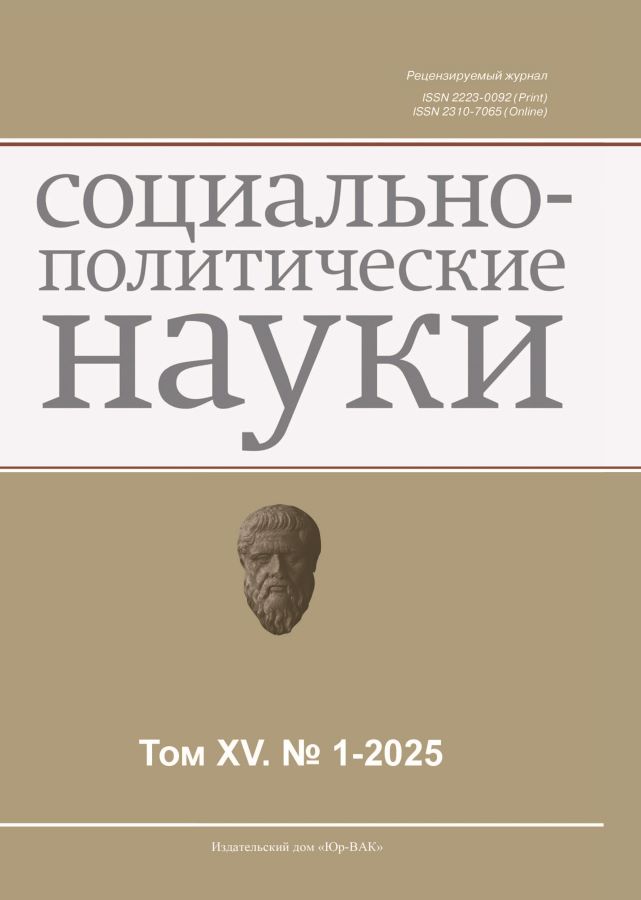Personnel assessment as a key management tool in the system of additional education
- Authors: Gromova M.V.1
-
Affiliations:
- Financial University under the Government of the Russian Federation
- Issue: Vol 15, No 1 (2025)
- Pages: 146-151
- Section: Sociology of management
- URL: https://journals.eco-vector.com/2223-0092/article/view/679179
- DOI: https://doi.org/10.33693/2223-0092-2025-15-1-146-151
- EDN: https://elibrary.ru/JGHAIP
- ID: 679179
Cite item
Abstract
The article examines the role and importance of staff assessment in the system of additional education. During the analysis of a number of regulatory legal acts – the Federal state educational Standards of primary and general Education, the Professional Standard “Teacher of additional education for children and adults”, “Concepts for the development of additional education until 2030”, the national project “Success of every child” determined that the system of additional education urgently needs teachers who implement practice-oriented methods and innovative approaches in their work, those who know the technologies of social design, informal communication, and individualize educational activities. For the development and successful functioning of additional education, it is necessary to introduce a balanced system for evaluating the activities of teachers. This system will allow to identify key competencies that affect the core of pedagogical activity – the development and implementation of additional general education programs; it is focused on the interaction of the teacher with students and parents who act as the main customers of educational services.; it is aimed at the professional growth of teachers and overcoming deficits in their activities and allows them to stimulate the teacher’s work, affecting the material well-being of the latter.
Full Text
About the authors
Marina V. Gromova
Financial University under the Government of the Russian Federation
Author for correspondence.
Email: mavgromova@fa.ru
ORCID iD: 0000-0003-1597-7415
SPIN-code: 3996-7664
senior lecturer, Department of Management and General Humanitarian Sciences, Yaroslavl Branch
Russian Federation, YaroslavlReferences
- Zolotareva A.V. Scientific and methodological support for professional and career growth of a teacher in the field of additional education. Yaroslavl Pedagogical Bulletin. 2018. No. 4. Pp. 89–98. (In Rus.). doi: 10.24411/1813-145X-2018-10108.
- Loginova L.G. The quality of additional education for children. Management. Moscow: Megapolis Agency, 2008. 392 p.
- Mukhamedyarova N.A. Organizational and pedagogical conditions for the formation of meta-subject competencies among future teachers of the additional education system. Yaroslavl Pedagogical Bulletin. 2021. No. 5 (122). (In Rus.)
- Dyachkova T.V. Development of the personal and professional position of a teacher of additional education for children. Abstract of dis. ... of Cand. Sci. (Pedag.). Moscow: Institute of Educational Development Strategy of the RAE, 2023. 34 p.
- Dmitrieva T.M. Management of the development of the teaching staff in organizations of additional education for children in a competitive environment. Abstract of dis. ... of Cand. Sci. (Pedag.). Moscow: Institute of Educational Development Strategy of the RAE, 2021. 33 p.
- Zimnaya I.A. Key competencies – a new paradigm of educational outcome. Higher Education Today. 2003. No. 5. Pp. 34–42. (In Rus.)
- Apenko S.N. Theory and methodology of personnel assessment: Approaches and development. Abstract of dis. ... Dr. Sci. (Econ.). Omsk: Omsk University named after F.M. Dostoevsky, 2005. 34 p.
- Boldyreva N.P. Modern approaches and methods for assessing the ability of the organization’s personnel to compete in the market. Bulletin of Eurasian Science. 2023. Vol. 15. No. 4. (In Rus.)
- Gromova M.V. Professional standard as a basis for creating a model for evaluating the activities of teachers of additional education. Humanities, Socio-economic and Social Sciences. 2024. No. 11. Pp. 29–35. (In Rus.). doi: 10.24412/2220-2404-2024-11-5. EDN CQPNON.
Supplementary files











